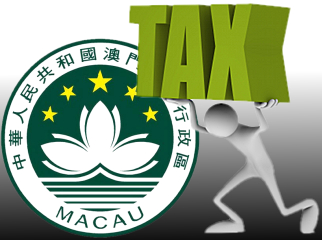 Macau’s casino concessionaires could face an increased tax burden once their current deals with the special administrative region expire in 2020 and 2022. Hong Kong-based Macquarie Equities Research analyst Gary Pinge says Macau’s government has “a long history of increasing fees and upping taxes after the expiry of each concession contract,” meaning the effective 39% tax rate currently paid by casinos – 35% on gross gaming revenue plus an additional 4% in social contribution tax and license premiums – will likely rise even higher early in the next decade.
Macau’s casino concessionaires could face an increased tax burden once their current deals with the special administrative region expire in 2020 and 2022. Hong Kong-based Macquarie Equities Research analyst Gary Pinge says Macau’s government has “a long history of increasing fees and upping taxes after the expiry of each concession contract,” meaning the effective 39% tax rate currently paid by casinos – 35% on gross gaming revenue plus an additional 4% in social contribution tax and license premiums – will likely rise even higher early in the next decade.
Casino taxes constituted 83% of Macau’s total public revenue last year. Nevada’s gaming tax rate is a mere 6.75%, generating around 22% of the state government’s annual revenue. Singapore taxes its two integrated resort casinos at a split rate: 5% for VIP gaming and 15% for the mass market sector (plus 7% GST). The Philippines has adopted a 15% tax on foreigners gambling in Manila’s Entertainment City, while locals pay 27%. Taiwan has proposed a 7% tax rate when it opens its first casino sometime before the end of this decade, rising to 9% after 25 years (plus local taxes not to exceed 7%).
In 1962, Macau required Stanley Ho’s casino monopoly to pay a fixed rate of MOP 3m. In 1976, Macau established a tax rate of 10.8% of GGR, which rose to 25% in 1982 and 31.8% by 1997. Pinge suggests that regional casino competition may eat into Macau’s revenues, lowering the rate of return to the government’s coffers. Pinge expects the government to “increase both the direct tax rate and contributions to other social funds.” Macau could also choose to boost the license renewal premium.
Should operators balk at these demands, Pinge notes that there are plenty of other casino operators who didn’t manage to get aboard the Macau gravy train – take a bow, Caesars Entertainment – and would leap at the chance to make up for lost time, regardless of the tax burden. Most of the concessions expire in 2022, but SJM Holdings’ comes due in 2020. SJM’s experience – and that of its sub-concessionaire MGM China – will indicate how deep Macau intends to plunge the knife.
